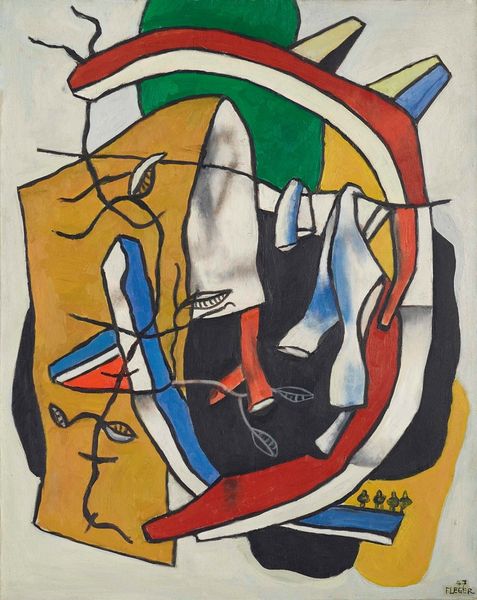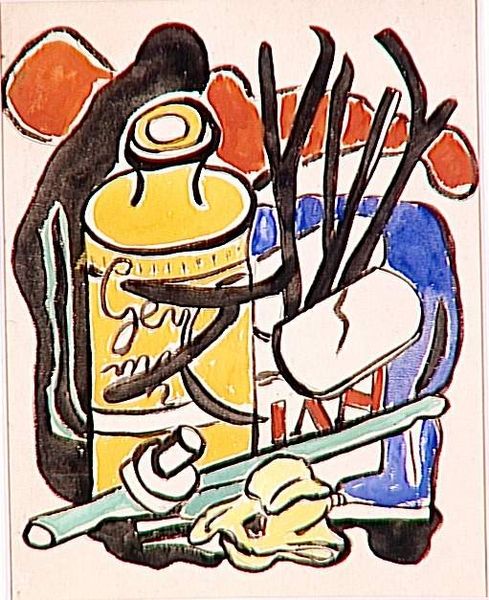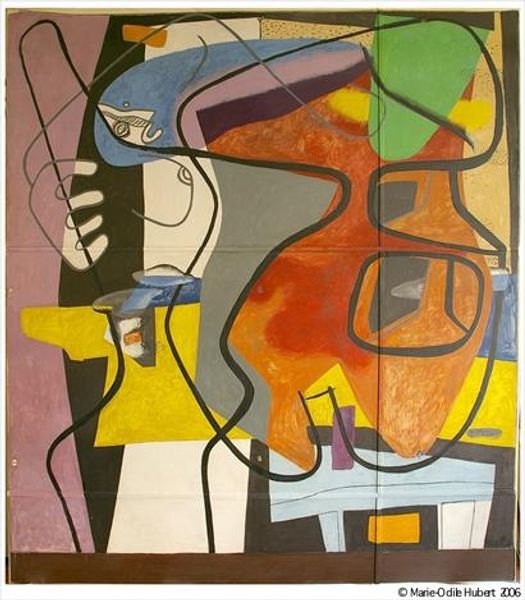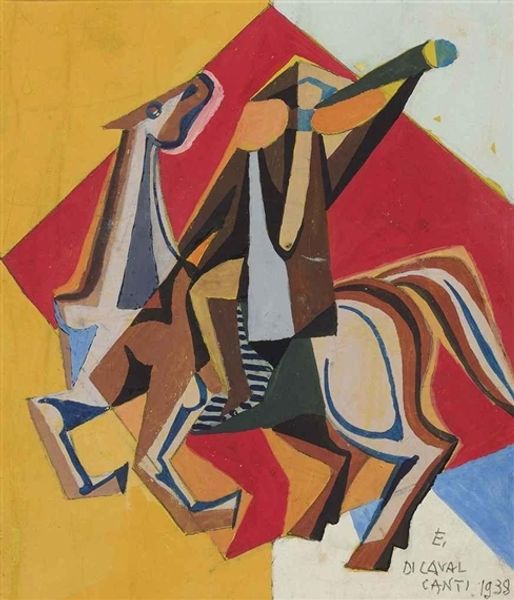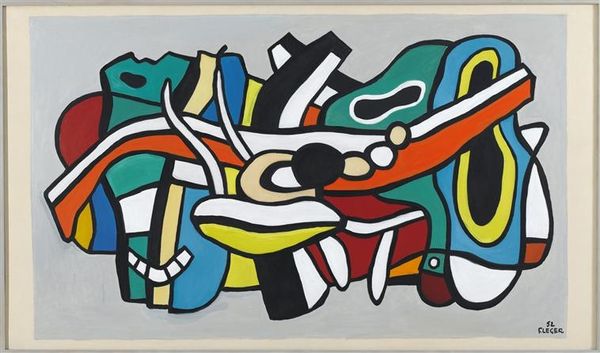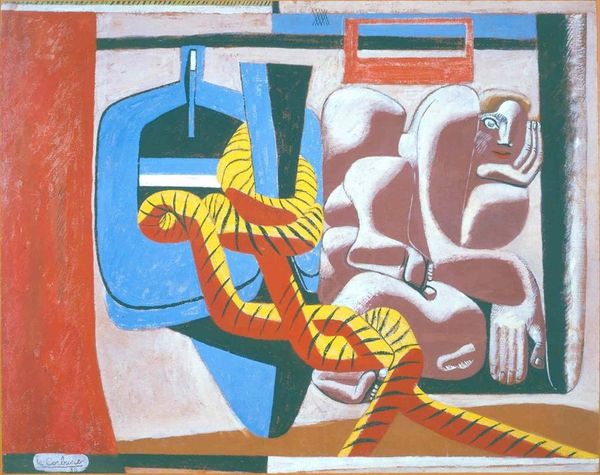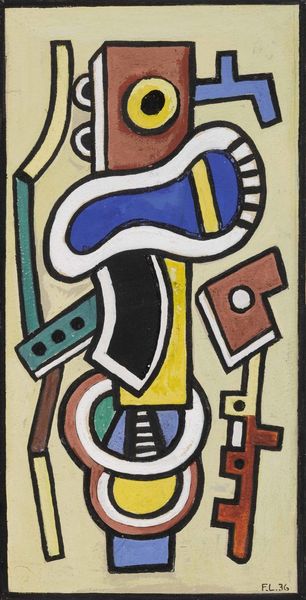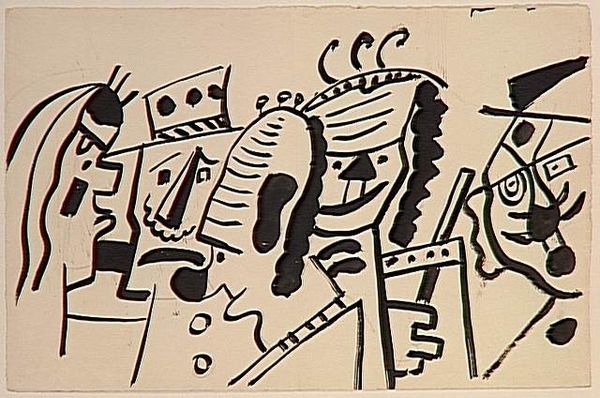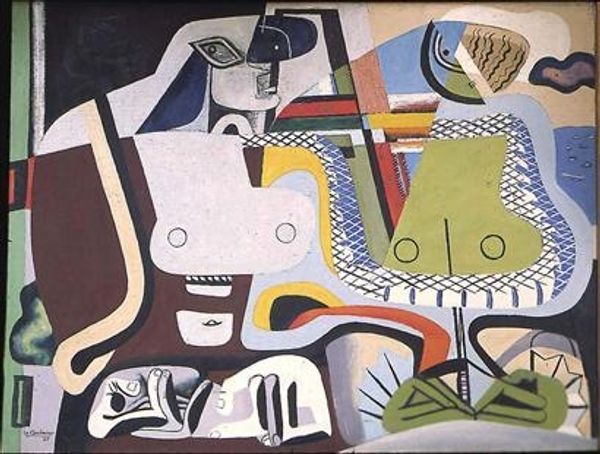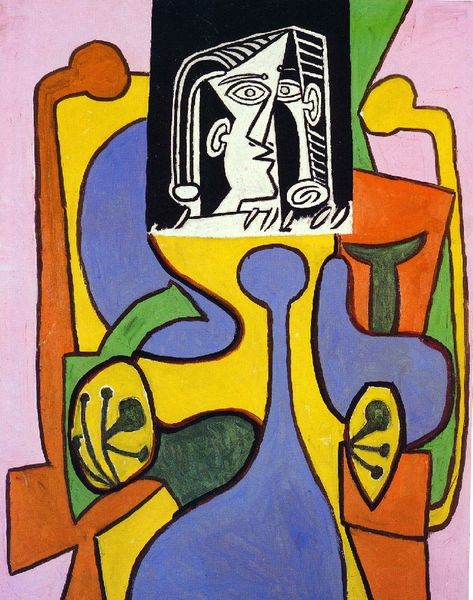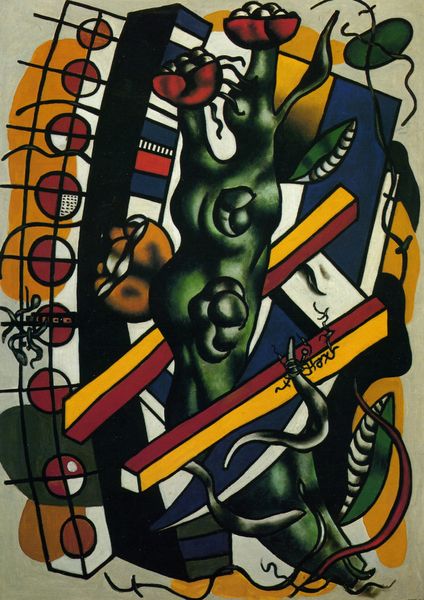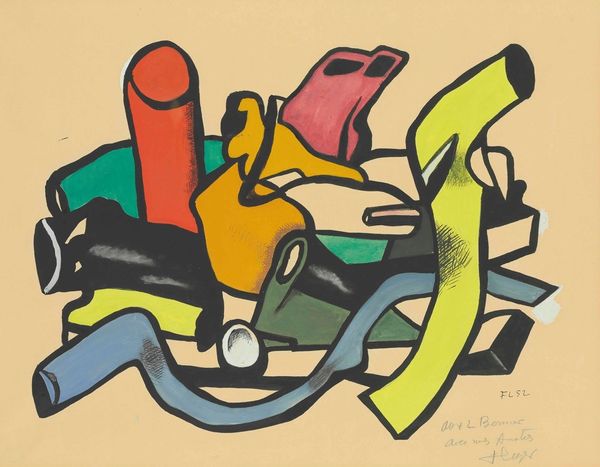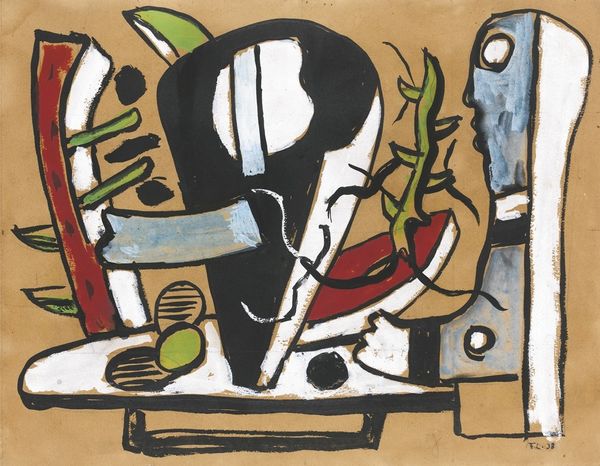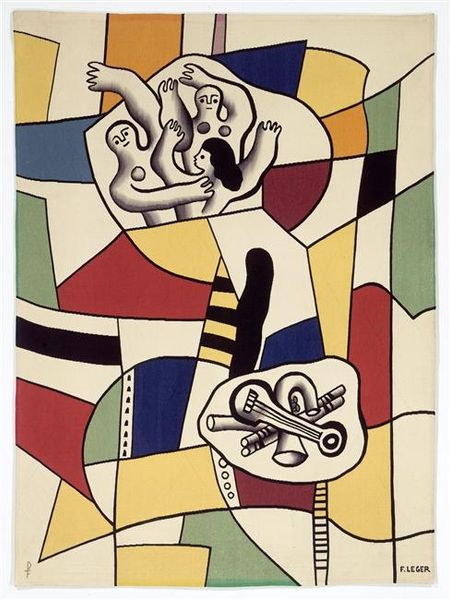
painting, oil-paint
#
cubism
#
painting
#
oil-paint
#
pop art
#
abstraction
#
modernism
Copyright: Fernand Leger,Fair Use
Curator: Here we have Fernand Léger's "Branches (Logs)," a striking oil on canvas completed in 1955, currently residing at the Musée National Fernand Léger in Biot, France. Editor: My initial impression is one of dynamic tension. The stark lines and bold colors create a composition that feels both fragmented and surprisingly harmonious. There's a palpable sense of movement even though it's ostensibly an abstract still life. Curator: Léger was deeply influenced by the mechanization of society; even his embrace of abstraction held representational origins. Consider this composition through the lens of postwar reconstruction— the artist had aligned with the French Communist Party, embracing the working class. Editor: Right, his art becomes inextricably linked to social reconstruction, particularly focusing on themes of labour. While abstract, the title "Branches (Logs)" nudges us toward an engagement with nature in an era of immense change. Could it also be a commentary on resource distribution? Curator: Possibly. The interwar years and after presented political anxieties which influenced Léger to abandon pure abstraction in favor of recognizable subjects and promote unity, embracing new forms of realism that spoke to social progress and accessibility. His art shifted into a form easily grasped by everyday people. Editor: That's evident in his use of color here. The limited palette—bold reds, yellows, blacks, and grays—makes a strong statement. And it’s tempting to frame this piece within discourses on environmental responsibility that gained traction in the late twentieth century. The logs may become potent symbols of resource use, misuse and an expression of collective values. Curator: Precisely. Léger's post-Cubist language communicates directly to the viewer, seeking to connect rather than isolate. The emphasis on form, the simplification of elements. Everything is distilled to its essence. Editor: This exploration prompts us to question art's role in advocating awareness of ecological issues and prompts conversations around sustainability, highlighting nature. In this context, "Branches (Logs)" transcends mere representation of objects to become an exploration of how society engages with nature and labour. Curator: Viewing his artwork with that added layer of significance offers renewed admiration for his body of work. Léger found ways of connecting avant-garde concepts with universal themes of the working class. Editor: It deepens our appreciation, connecting threads of labour, material consumption, and social movements. This has challenged my perceptions today. Thank you!
Comments
No comments
Be the first to comment and join the conversation on the ultimate creative platform.
